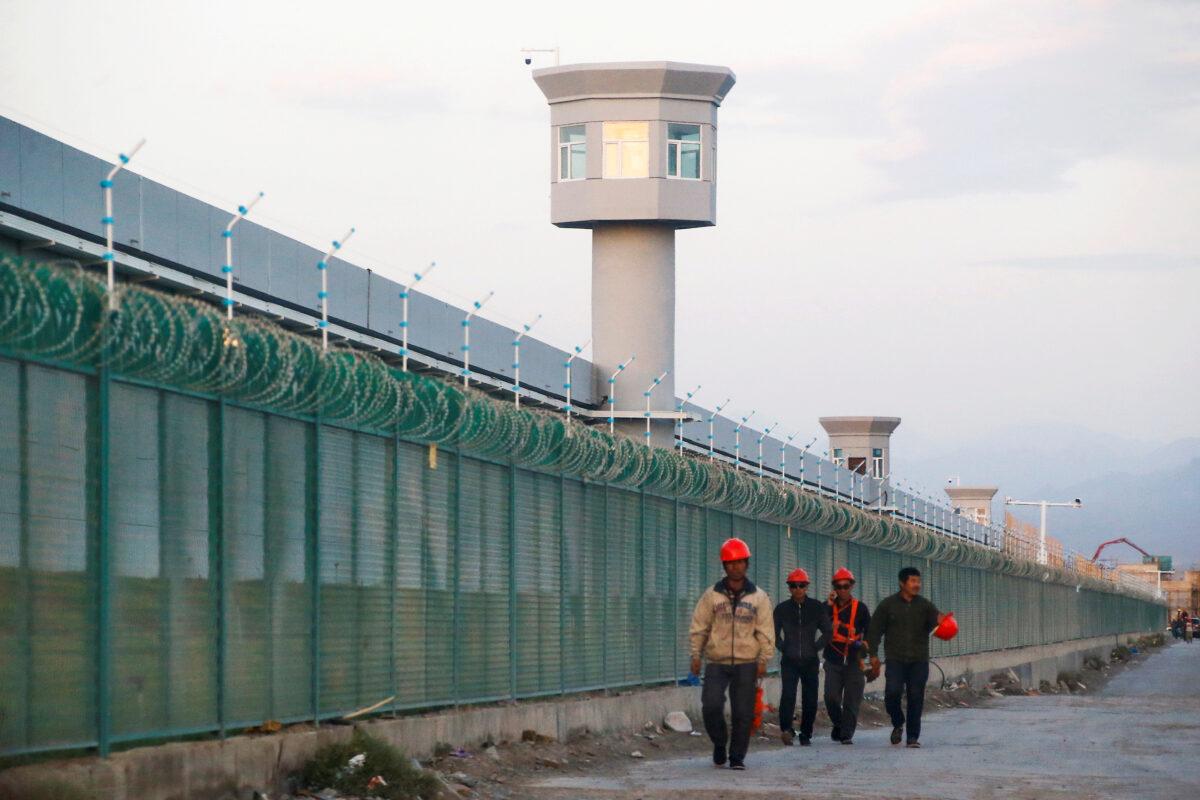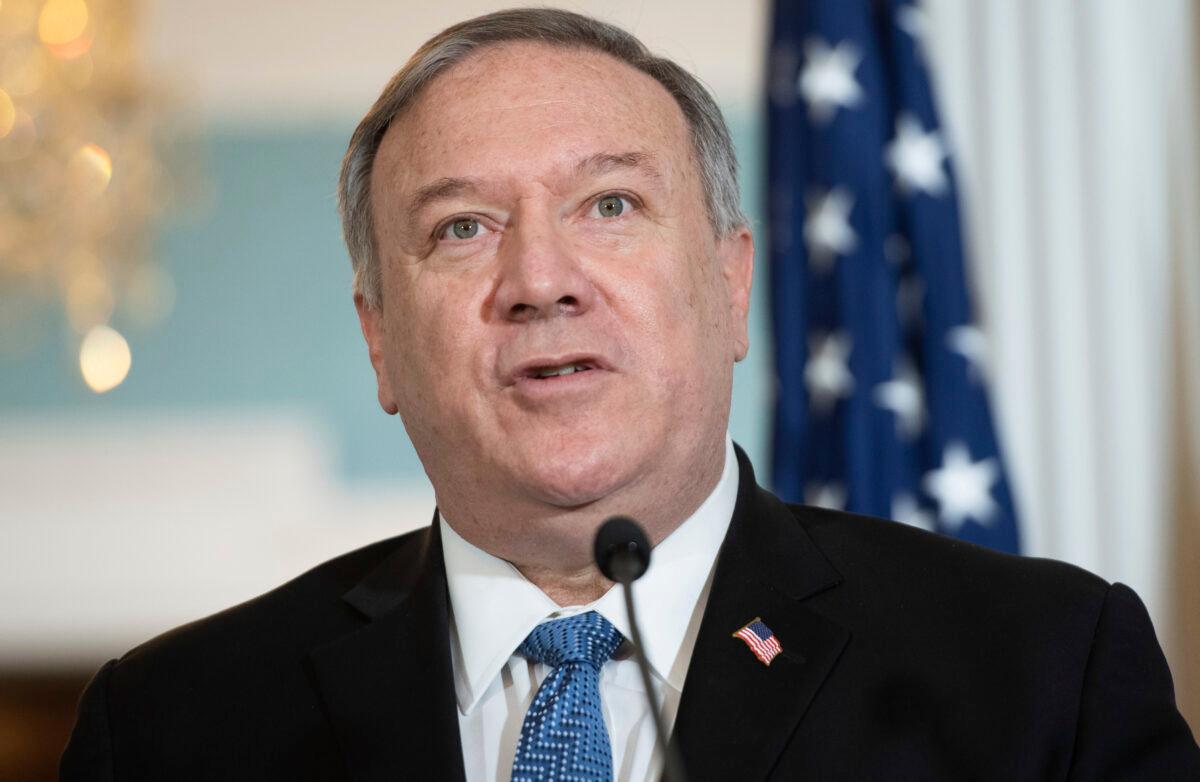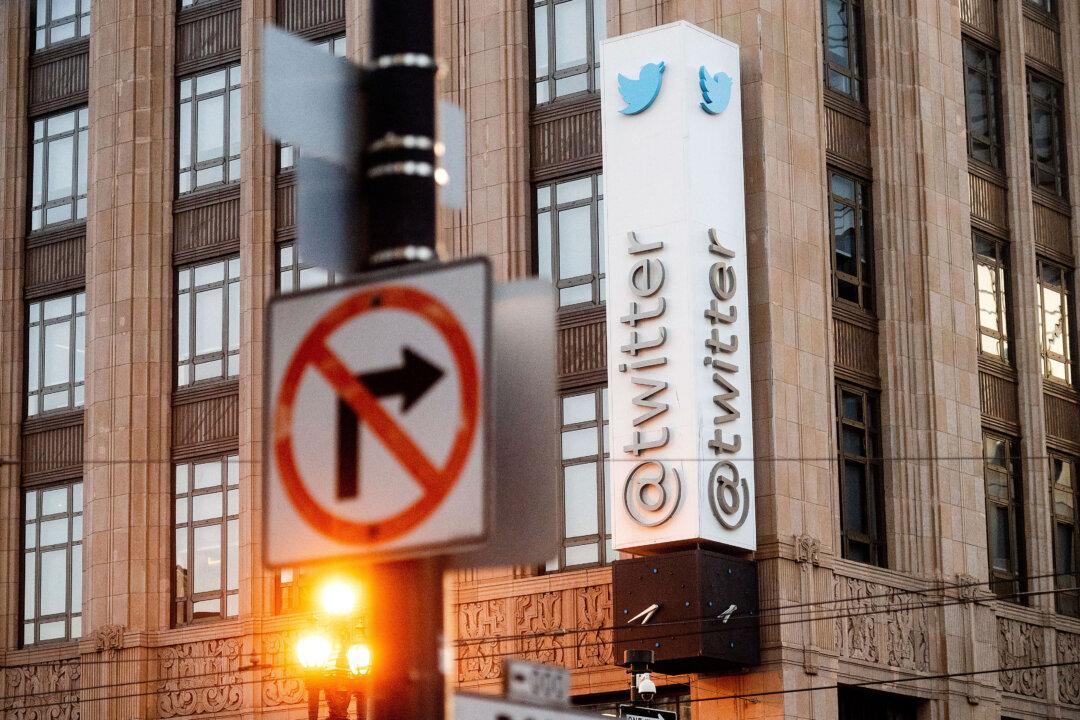A Twitter spokesperson told Fox News on Jan. 14 that recent tweets by China’s communist regime denying the existence of forced labor in Xinjiang Province and accusing the United States of making up lies about the documented human rights violations there don’t break the social media platform’s rules.
But according to widespread investigative reporting, China’s communist authorities have ramped up their suppression of ethnic Uyghur minorities in the Xinjiang region. This includes mass internment of around 1 million people, compulsory reeducation programs, highly intrusive human and digital surveillance, religious suppression, enforced sterilization of women, and forced labor.
The Chinese regime has rejected the accusations, claiming that the camps are vocational training centers and that the associated programs are meant to curb religious extremism and prevent terrorism.

One of Hua’s tweets also accused the United States of making up lies and taking “egregious actions” that violate international trade rules and “damage the interests of companies and consumers all over the world including those in the U.S.”
A propaganda video with cheerful music accompanied Hua’s tweets, featuring smiling workers at factories in Xinjiang, speaking about how “a lot of our living habits have been changed and improved.”
“We were being taken into places that appeared to have been carefully spruced up—with satellite images revealing that much of the security infrastructure had recently been removed,” BBC reporter John Sudworth wrote. He described detainees, with “smiles fixed in place,” speaking of volunteering to have their “thoughts transformed” and performing choreographed music and dance routines meant to impress on journalists that inmates previously “infected by extremism” were being “reborn” thanks to their internment.
A Twitter spokesperson told Fox News that China’s foreign ministry tweets didn’t violate the company’s rules.
Twitter did not respond to a request for comment by press time.
Twitter recently removed a post by the Chinese Embassy in Washington claiming that Uyghur women have been de-radicalized, “emancipated” from extremism, and were no longer “baby-making machines.” The post linked to an article by state mouthpiece China Daily, denying allegations of forced sterilization in Xinjiang.
Twitter said the post “violated the Twitter rules” but didn’t provide details.

Secretary of State Mike Pompeo criticized the Chinese Embassy tweet that claimed Uyghur women were “emancipated.”
Twitter’s conduct in restricting content on its platform has been in the spotlight for years, including concerns about what some argue is a double standard.
Twitter CEO Jack Dorsey, in a tweet on Jan. 13, acknowledged that the company’s decision to remove Trump was divisive and set a dangerous precedent.
“I do not celebrate or feel pride in our having to ban [Trump] from Twitter, or how we got here. After a clear warning we’d take this action, we made a decision with the best information we had based on threats to physical safety both on and off Twitter. Was this correct?
“I believe this was the right decision for Twitter. We faced an extraordinary and untenable circumstance, forcing us to focus all of our actions on public safety. Offline harm as a result of online speech is demonstrably real, and what drives our policy and enforcement above all.”
Twitter’s move to ban Trump was met with criticism from world leaders, including the president of France and the chancellor of Germany.





